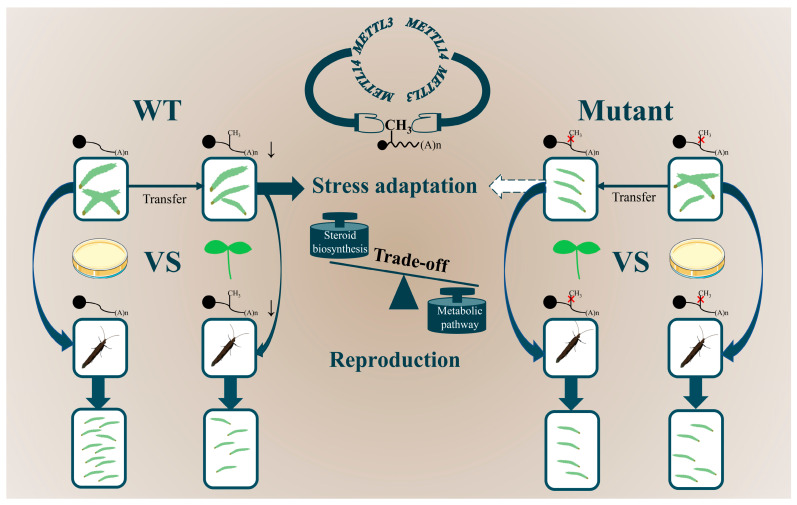Figure 8.
A schematic representation of m6A-mediated adaptation of P. xylostella to host plants. After the WT strain was transferred from AD to feed on radish seedlings, m6A modification occurred on certain sites of mRNA transcripts. This may result in expression regulation of the genes related to adaptation to host plant defense and nutritional stress through the steroid biosynthesis pathway; however, this may also result in energy reallocation through the metabolic pathway and at the expense of adult reproduction. Therefore, although the WT larval performance on the host plant was not significantly affected, WT adult reproduction was significantly reduced. Due to the lack of methyltransferase (s), the mutant strains could not regulate gene expression through m6A modification. Therefore, the mutant larval performance on the host plant was significantly impaired, while the mutant adult reproduction was not as affected as WT. Larvae of different sizes are proportional to their weights. Downward arrows indicate the downregulation of gene expression, and dotted arrows indicate reduced stress adaptability. The solid circle indicates the 5′ cap structure of mRNA, and “(A)n” indicates the 3′ polyA tail.

